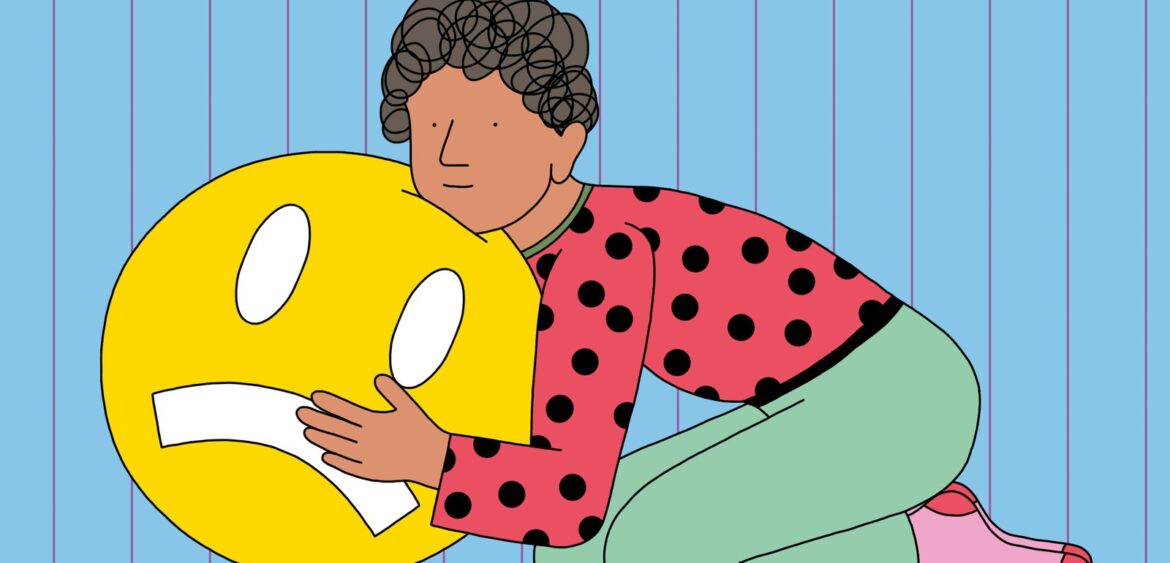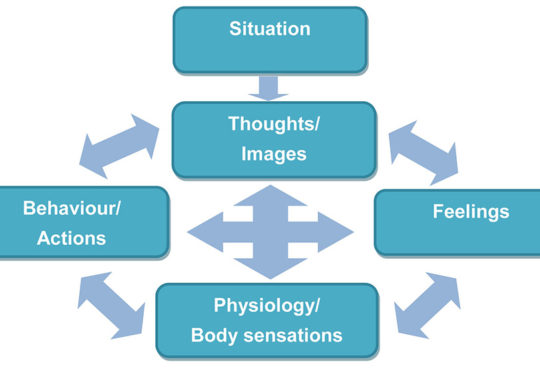What if I gave you a gift… I had the ability to give you a life without physical pain. Great hey? At first this would seem like a great thing – never to feel physical pain. However, when you actually stop to think about it it would be very dangerous. How would you know that your hand is burning on the cooker? How would you know you’d sprained your ankle on your run? You wouldn’t know if you had persistent headaches which were telling you something was wrong. Physical pain can actually be very helpful and is necessary to keep ourselves safe.

So, what about negative thoughts. What if a person never had any negative thoughts? This person never thought they were an idiot. They thought that everybody liked them. They thought that everything and everyone in the world was safe. They thought that they excelled at everything. Wow – they’d be the happiest person ever, right? Well… maybe… but I’m not convinced. I’m also not sure I’d like to meet this person. This person would never have felt the need to change, to grow, or to better themselves. They’d be the same person they were as a child. I think this person would probably be very hard to like. They would feel that they had no limits and they also wouldn’t be able to keep themselves safe from the things in the world that weren’t good for them.

The fact that we have negative thoughts can actually be a helpful thing sometimes. They can tell us when we have done something wrong. They can tell us we have been mean or unkind. They can tell us that sometimes we have failed and are lacking. This is good. They can point out our failings and help us to grow and change. They can tell us that something in our lives is not right and needs to change. They are trying to help us and it can sometimes be a good thing to listen to them in case they are trying to tell us that something does need to change.

For example, maybe your negative thoughts keep telling you that you always make bad choices for partners and that you are completely unlovable. Normally the advice is to try and ignore these types of thoughts and challenge them because they are unhelpful and negative. However, what if they are actually true? Just trying to replace the thought with a more positive one or trying to get rid of the thought might not be helpful at all. A different approach could be to listen to the thought and try to understand the reasons why you may always choose the wrong partner. You might be conditioned to do this from childhood experiences, or you may be shielding yourself from getting close to the ‘right’ person, or you may think you’re not worthy.
What about the other part of the thought that you are completely unlovable? Maybe, at the moment, this is also true. What if you are unconsciously making yourself unlovable at the moment because it’s a defence you have used for a long time and it feels safer? If you just ignored this thought then this unconscious defence may stay for longer than necessary. Listening to the thought, trying to understand it and then working on trying to change the underlying issues would be the most helpful course of action.

Another example is the thought ‘I’m useless, I don’t achieve anything’. Again, maybe this could partially be true. Are you deliberately, but unconsciously, sabotaging yourself all the time? Are you scared of doing well and achieving? Again, it’s more helpful for us to listen to these thoughts and try to understand whether they are telling us that something needs to change.

The good thing about realising that negative thoughts can be helpful at times is that you do not have to try and “get rid” of your negative thoughts. You do not need to ‘banish’ them or ‘eliminate’ them or ‘stop’ them as many self-help books will tell you to. I’m pretty sure this is impossible anyway so trying to do it will just lead to failure and probably more negative thoughts! So, as said before, the better course of action to take if you feel that your negative thoughts are making you unhappy is to listen to them, try to understand where they are coming from and what you might need to do to change in order to lessen them. You might be able to do this by yourself but, if your thoughts are overwhelming, I would advise doing this work with a therapist in order to keep yourself safe.






Sorry, the comment form is closed at this time.